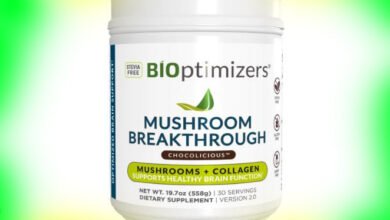
For millennia, people have been enthralled by mushrooms for their medicinal and gastronomic qualities as well as for their enigmatic and complex life cycle. Mushroom spores, the minuscule seeds that enable the growth and knowledge of these amazing fungus, are crucial in their life cycle. Whether you’re a seasoned mycologist, a home grower, or just curious about the world of mushrooms, this guide will cover all you need to know about mushroom spores with particular attention to their significance to enthusiasts in the United States.

Table of Contents
ToggleWhat Are Mushroom Spores?
Little, reproductive cells generated by fungus are called mushroom spores. See these as the mushroom world’s “seeds”. Released from the gills, pores, or other features of adult mushrooms, these spores wind, water, or animal-dispersed throughout the environment. When conditions are ideal, these spores germinate and grow into new fungal networks, known as mycelium, which eventually form mushrooms.
Every type of mushroom generates distinct, varied-sized, shaped, and colored spore from which to draw. Their variety makes them a wonderful topic for research and cultivation.
Why Are Mushroom Spores Important?
Reproduction and Survival: Spores are essential for the reproduction and survival of mushroom species. They allow fungi to colonize new environments and adapt to changing conditions.
Cultivation: For mushroom growers, spores are the starting point for cultivating mushrooms at home or in controlled environments. By understanding how to collect, store, and use spores, enthusiasts can grow a wide variety of mushrooms.
Scientific Research: Mushroom spores are studied by scientists to understand fungal biology, ecology, and evolution. They also play a role in medical research, particularly in the development of antibiotics and other medicines.
Biodiversity: Spores contribute to the incredible biodiversity of fungi, which are vital to ecosystems as decomposers, symbiotic partners, and food sources for other organisms.
How to Collect and Use Mushroom Spores
If you’re interested in collecting and using mushroom spores, here’s a step-by-step guide:
Choose a Mature Mushroom: Select a healthy, fully mature mushroom with visible gills or pores.
Create a Spore Print:
Remove the stem and place the cap, gill-side down, on a piece of white paper or aluminum foil.
Cover the cap with a glass or bowl to prevent air currents from disturbing the spores.
Leave it undisturbed for 6-24 hours. The spores will fall onto the paper, creating a unique pattern.
Store the Spores: Once the spore print is dry, store it in a sealed plastic bag or envelope in a cool, dark place. Properly stored spores can remain viable for years.
Use the Spores for Cultivation: Spores can be used to inoculate sterile substrates, such as grain or sawdust, to grow mycelium and eventually mushrooms.

Legal Issues Regarding Mushroom Spores United States
Mushroom spores are authorized to buy and use in the United States for microscopy and study needs. Federal law forbids growing some species of mushrooms, especially those that contain psilocybin, though. Before buying or handling mushroom spores, always study local and federal rules.
Popular Types of Mushroom Spores in the U.S.
Gourmet Mushrooms: Spores from species like Shiitake, Oyster, and Morel mushrooms are popular among home growers for their culinary value.
Medicinal Mushrooms: Reishi, Lion’s Mane, and Turkey Tail spores are sought after for their health benefits and medicinal properties.
Psychedelic Mushrooms: While their cultivation is illegal, spores from species like Psilocybe cubensis are widely studied and discussed in the mycology community.
The American Future of Mushroom Spores
The American Future of Mushroom Spores
Mushroom spores are more available to aficionados all throughout the United States as interest in mycology keeps rising. Growing respect for the ecological and therapeutic advantages of mushrooms as well as improvements in farming methods are boosting demand. Mushroom spores provide a portal into the amazing world of fungi regardless of your interests—hobbyist, scientist, or just curious.



